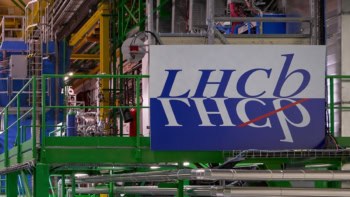The UK government has cleared the way for the country's last two state-owned nuclear power firms to join forces.
The merger between Magnox Electric and British Nuclear Fuels Limited (BNFL) should be complete within a year, creating a new group with a combined turnover of £1.8 bn and almost 18 000 staff, including 3900 scientists. The move will save the government at least £1.1 bn, but it will still have to pay the merged firms at least £3.7 bn to cover nuclear liabilities.
BNFL, the more successful of the two firms, is mainly responsible for reprocessing spent fuel, decommissioning redundant nuclear power stations and managing and disposing of nuclear waste. With 13 000 staff, a US subsidiary and offices around the world, it made a profit of £116 m on a turnover of £1262 m in 1996/97.
Magnox Electric – the smaller partner with just 3700 staff – is an electricity generator. It operates six old-style Magnox power stations, which generated about 6.5% of the total UK electricity output in 1996. It made a pre-tax loss of £68 m in 1996/97 on a turnover of £568 m.
The two companies already have close links. Indeed, most of Magnox Electric’s expenditure is on fuel, reprocessing and waste management services that are provided by BNFL. The government believes that merging the two companies will be more efficient than continuing to run them separately. John Battle, the minister for energy and science, says the merger will “bring together the financial and management responsibilities for these processes to create better incentives for securing cost reductions”. But sharing technical and commercial expertise in this way could put jobs at risk. Although a BNFL spokesman says it is too early to know if there will be any job losses, he adds that some duplication between jobs will be “inevitable”.
Expected cost savings from merging the companies also mean that the government will only have to pay the merged firm £3.7 bn to help to meet its nuclear liabilities over the next hundred years – a saving of £600 m on the deal agreed by the previous government with Magnox Electric in 1996. BNFL has also agreed to absorb another £500 m of Magnox Electric’s liabilities that the government had previously agreed to cover, bringing the total government saving to £1.1 bn. And BNFL has said that any additional savings that the company makes on its clean-up bill will be shared with the government, up to a maximum of £800 m.
Magnox Electric will initially be a wholly owned subsidiary of BNFL, before forming part of a new business group called Magnox Generation that will also include two other Magnox power stations currently owned by BNFL. Provided that BNFL can win permission to run Magnox Electric’s operations from various regulatory authorities, the merger of the two companies should be complete within a year.



